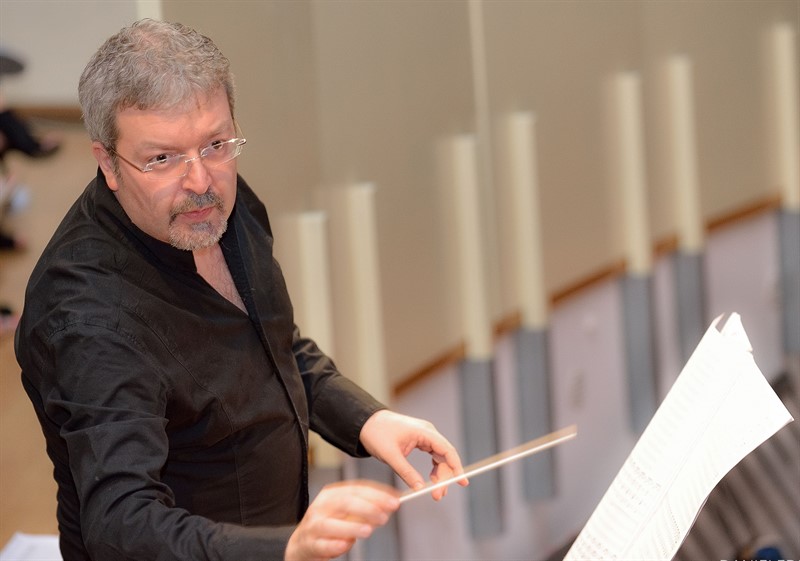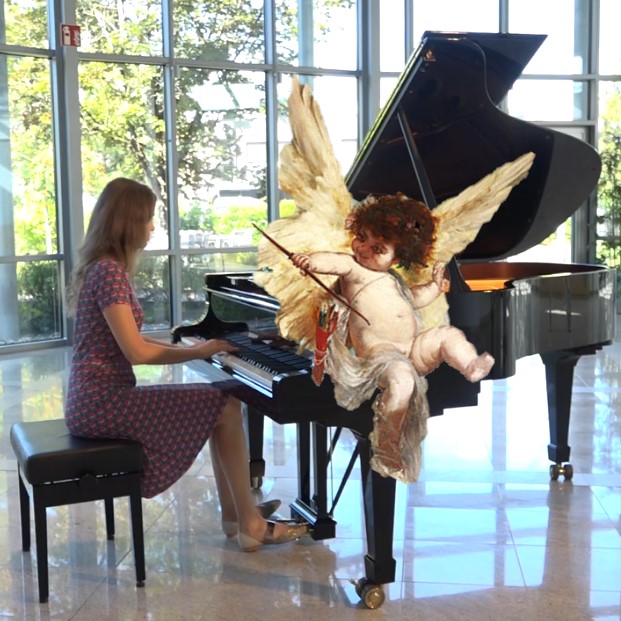About
Antonio obtained diplomas for piano, piano teaching, musical analysis, choir direction, conducting at the Conservatory of St. Cecilia, the International Academy of Arts in Rome and the Higher School of the A.M.P. He studied psychology applied to music with F. Trippetti; analysis with M. Of the Church; counterpoint and composition with M. Corona (Karajan's pupil) and G. Manzoni; composition for film music with S. Miceli, E. Morricone and L. Bacalov earning a bachelor's degree; conducting with F. Angius and R. Gabbiani; conducting with D. Renzetti.
He has collaborated with prestigious institutions and some of the most valuable artists on the international scene: P. Bellugi, F. Mannino, D. Renzetti, G. Gelmetti, Larry Willis, R. North, E. Beruschi, M. Fabrizio, C. Baglioni, P. Morgia, L. Tommasini, B. Tosi, C. Gasdia, the Chigiana Academy of Siena, Classica Today, the Italian Society of Music and Theatre, the Italian Winds , The Athens International Festival...
Invited as a composer to the 1996 Majella Prize under the high patronage of the Presidency of the Republic, he recorded some of his works in a CD sponsored by the Ministry of Cultural and Environmental Heritage. He is the author of chamber music, choral, symphonic and operatic. His compositions of sacred music were performed in the Vatican on the occasion of the Celebration of St. John Paul II for the Beatification of Mother Eugenia Ravasco broadcast in worldvision. The last works include the Dedalo Ballet with choreography by R. North and the participation of Maria Teresa Ruta; the lyrical opera The Adventures of Pinocchio; the operas The Cat in Boots, Little Red Riding Hood, Snow White; the Christmas Oratory, the Passio et Resurrectio, the Cantica Faceta, the ballet Carpe Diem.
The biography, the catalogue of production, the analysis of the compositions and the engraving of one of his works, were included in the Encyclopedia of Italian Composers of the 20th century. His compositions are recorded in the database of Italian composers and edited by Suvini Zerboni, Pagano, Vecchio Mill. Essays, reviews and information about his artistic activity appear in national and foreign magazines (L'Opera, Amadeus, Il Giornale della Musica, The Theatre Corriere, Music and School, Musical Perspectives, La Cartellina, Choraliter, Europa Cantat...)
He was appointed by Feniarco as representative of Italy to the European Parliament of Music (Brixen 1998) and chairman of the Committee on Art and Culture. For several years, the artistic activity has been accompanied by teaching: a professor of Choir Direction at the master classes of the Pescarese Music Academy; of Choir and Orchestra direction as part of the international courses of the Frentana Musical Summer of Lanciano; of the master's course in composition at the Music Institute of Taranto P.Longo; of the conducting courses in Catania, the choir and orchestra course in Pescara.
Former director of the Iuvenes Cantores Polyphonic Choir and the Choir of the Marrucino Theatre of Chieti, he is conductor of the European Symphony Orchestra Ars Musica. His opera The Adventures of Pinocchio was performed at the Athens International Festival during the 2004 Olympics in Greece with the Berlin Philharmonic, Luciano Pavarotti, the Vienna Philharmonic, the London Symphony...

